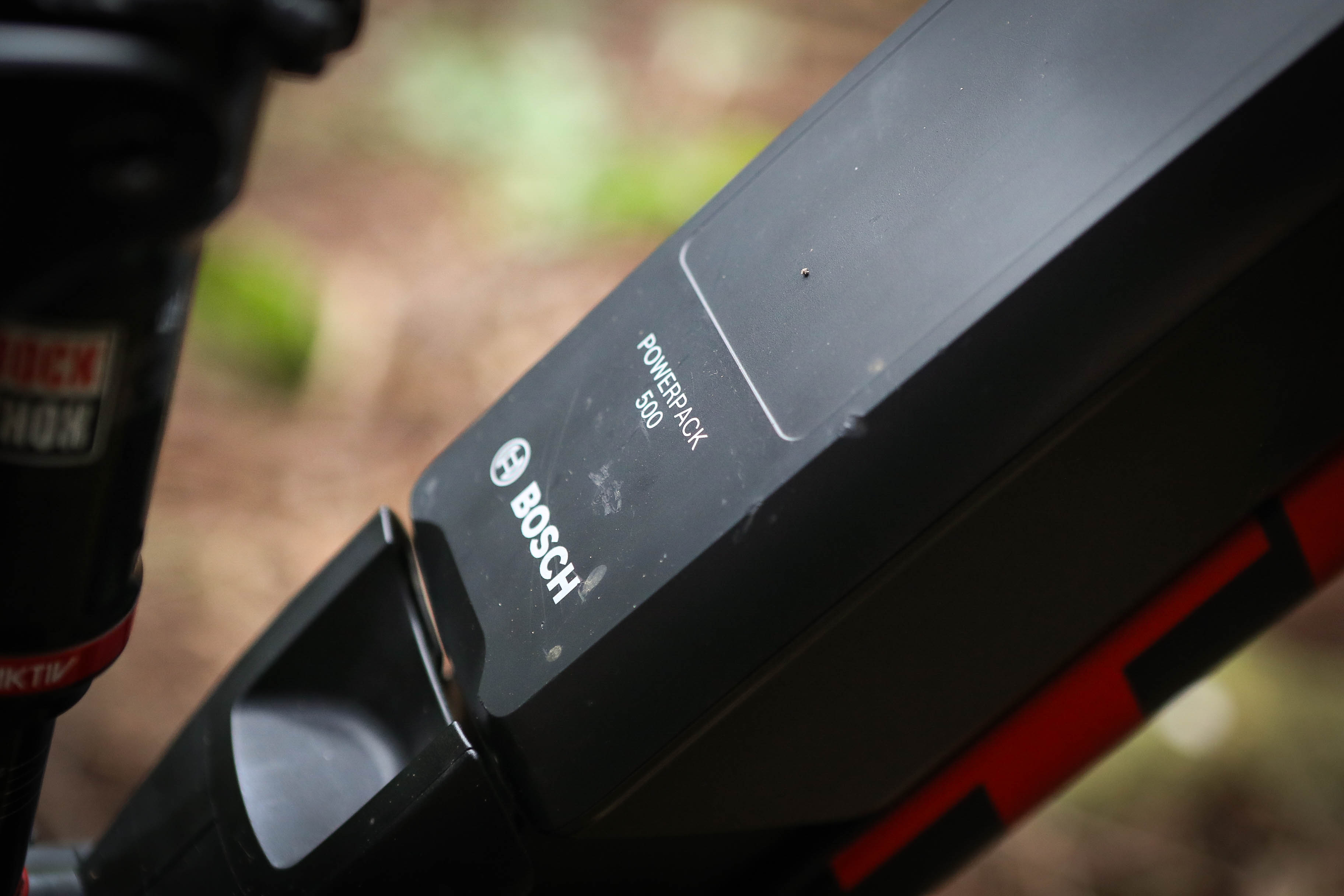ebike BATTERY LIFE
As with any electronic device, the battery life of an e-bike will slowly deteriorate over time until it will become noticeably worse than when the bike was new.
Bosch believe that even after 500 charges their battery will still hold “60 to 70 per cent of the original capacity.” In an ADAC test from autumn 2015, a Bosch e-bike battery was fully discharged 1,515 times before it could hold only 30 per cent of its original capacity.

Specialized, who use their own motor and battery system for their Levo range, have a suggested battery range of 700 charges, this means a full 100% depletion of battery life, not just partial charges. Shimano claim that the battery life will reduce 5 per cent a year, so 95% after one year and 90 per cent after two.

RECYCLING ebike batteries
So what do you do when they no longer power your bike? How do you dispose of them, is there any collection process for these types of batteries?
The current levels of lithium battery collection in Europe are very low with only an estimated 5 per cent of batteries on the market being recycled, most are incinerated or end up in landfill.

The main issue with recycling lithium batteries is that the majority are stuck inside devices like laptops and phones so they just go to landfill. With e-bikes, the battery can be easily removed making it theoretically very simple to recycle the batteries, minimising any impact on the environment.
Global materials technology and recycling group Umicore operates a plant capable of processing the 2 million e-bike batteries on the market but it only works if batteries come to them and aren’t sent to landfill first. This requires a process for consumers and companies to send their batteries to a recycling plant.

Bosch, Specialized and other companies that have heavily invested in e-bike technology offer a free recycling process which asks riders to return used batteries to dealers so they can be sent to recycling centres. Specialized say that “whether it be warranty or replacement their local Specialized retailer will be able to help them out.”
Recycling is really the key issue here; the production of these batteries is problematic for both the people involved and the environment but it’s what happens at the end of the battery’s life that either compensates for the production impact or multiplies the damage.
Extraction of lithium is always improving and companies are finding ways to gather it without the heavy use of chemicals that damage the environment but batteries will only be recycled if the systems are in place for that to happen.
Currently, the disposal of these batteries is done at a brand level with no real country/global program in place to ensure they are disposed of in an environmentally sound way. But with pressure being put on companies by governments to recycle lithium batteries this may not be the case for much longer.

We live in a throwaway culture and with the constant changing of technologies and standards for components there is an even greater need to recycle, worth bearing in mind if an ebike is on your shopping list.

















